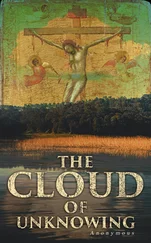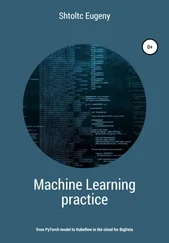Matt Richtel - The Cloud
Здесь есть возможность читать онлайн «Matt Richtel - The Cloud» весь текст электронной книги совершенно бесплатно (целиком полную версию без сокращений). В некоторых случаях можно слушать аудио, скачать через торрент в формате fb2 и присутствует краткое содержание. Жанр: Триллер, на английском языке. Описание произведения, (предисловие) а так же отзывы посетителей доступны на портале библиотеки ЛибКат.
- Название:The Cloud
- Автор:
- Жанр:
- Год:неизвестен
- ISBN:нет данных
- Рейтинг книги:3 / 5. Голосов: 1
-
Избранное:Добавить в избранное
- Отзывы:
-
Ваша оценка:
- 60
- 1
- 2
- 3
- 4
- 5
The Cloud: краткое содержание, описание и аннотация
Предлагаем к чтению аннотацию, описание, краткое содержание или предисловие (зависит от того, что написал сам автор книги «The Cloud»). Если вы не нашли необходимую информацию о книге — напишите в комментариях, мы постараемся отыскать её.
The Cloud — читать онлайн бесплатно полную книгу (весь текст) целиком
Ниже представлен текст книги, разбитый по страницам. Система сохранения места последней прочитанной страницы, позволяет с удобством читать онлайн бесплатно книгу «The Cloud», без необходимости каждый раз заново искать на чём Вы остановились. Поставьте закладку, и сможете в любой момент перейти на страницу, на которой закончили чтение.
Интервал:
Закладка:
Now, I’m waiting in the exact same ED for my head to be checked, two seats down from an obese woman holding her stomach, rocking back and forth, and mumbling. My money is on fast-food poisoning. Across the room, a large man in his early twenties watches the ABC Evening News on a TV mounted high on the wall in the corner. His rapid left-eye twitch suggests blepharospasm , a condition likely caused by stress, not pathology, which, oddly, may make it of little interest to the docs here even though the underlying causes are ultimately more dangerous than, say, stepping on a rusty nail.
Sizing up my fellow patrons distracts me from my dislike of this place and of hospitals, which has only grown since that chilly July night when Isaac was born at Pacific Medical Center. Crinkly and beautiful, he appeared three weeks early by C-section. It was a miraculous night, divine. But it was also the beginning of the abrupt end with Polly and my utopian visions for a perfect family.
“Nathaniel Idle,” a woman calls from the reception desk.
She directs me to a cubicle where a nurse takes my vitals and temperature, and checks my eyes with an ophthalmoscope. He’s looking for signs of papilledema, a swelling of the optic disc, which can result from brain swelling.
“Let’s get you into a room. A doctor will see you shortly.”
The standard ED room-with its reclining bed covered in relatively sterile blue paper, jars of gauze and Q-tips, cabinets filled with various bandages and swabs, and a monitor mounted in the corner that can be used to measure breathing or heart rate, among other things-offers me no entertainment value. So I keep the door open to watch conditions pass by.
My cell phone signal is weak, to say the least. And a sign reads: “No phone use in patient areas.” But I dial Polly. Underscoring the bad connection, the ringing sound is intermittent but she answers on the third ring.
“Hello, mother of my child,” I say, with manufactured cheer.
“Hello.” Her voice sounds strange, garbled.
“Polly?”
“Hello.” She can’t really hear me.
“It’s me. How’s the nugget?”
The connection dies. I know from experience she’s got bad reception on her end too. I dial again, without success. Maybe she’ll send back a text, which tends to take less bandwidth than a phone call, and less interpersonal energy.
I catch a scent that I realize smells distinctly like the flowery aroma rising from steaming wonton soup. I look around the antiseptic room for Chinese food, seeing none, poke my head in the corridor and find only bustle. It’s then I realize that what I might actually be smelling is a memory, a manufacture of my injured brain.
Polly sits across from me in a cubbyhole restaurant in Pacific Heights, tapping chopsticks, uncharacteristically nervous. Or maybe she’s just trying to start working off the food. She’s eaten voraciously. After the dumplings and wonton soup, she ordered mu-shu vegetables, kung pao chicken and fried noodles, but reluctantly bypassed emerald shrimp because shellfish and pregnant women don’t mix.
She rests her left elbow on two folders she’s been showing me. On the cover of one, a silver-haired man flashing dentures stands beside a sports car, a boat in the background. It’s a prospectus for an investment fund Polly would like me to consider putting my nest egg into, all $19 of it. The other folder includes preschool applications. It’s about three years too early to think about this for our unborn nugget, but her advanced planning might well average out my procrastination. In terms of life strategies, this beauty and I combine for a happy medium.
A waiter drops fortune cookies onto our table. He’s got a limp in his left leg, my guess a meniscus tear from playing sports. I ask him. My diagnosis is wildly wrong. It’s not knee but ankle. He hurt it tripping over a plate of fried duck a busboy dropped. As the waiter walks off, I ask Polly: How was I supposed to know that? Am I really supposed to be able to diagnose poultry-related leg injuries? I’m smiling. She’s not. She’s cracked open her fortune cookie. She holds it up. There’s no fortune inside. Her lips quiver like she might cry.
Hormones, I assume. I gesture to the waiter to get another fortune. I look back at Polly. A single tear slides down her left cheek. Why do single tears seem so much more sad than torrents?
“Everything okay?”
“I need another fortune.” She clears her throat. She forces a smile. Then she says, “We need to talk.”
Back in the ED, I open my eyes, feeling woozy. I blink. Not for a second could I have imagined that my relationship with Polly was hanging in the balance that night-between the first fortune and the one the waiter would bring just a few minutes later. I blink again, squeezing my eyes hard. Much as I’ve replayed the conversation, I can’t quite replay what we said or how things went so wrong in that unexpectedly pivotal moment.
I hear a knock.
10
Standing at the door is a doctor in his late twenties or early thirties, dark skin, glasses, closely shaven. He’s thin to the point of an eating disorder. This is not an illness he suffers, but it’s certainly a condition I remember well. It’s the product of working seventy-hour weeks, including regular all-nighters, time usually spent walking or jogging from exam room to exam room, eating when time and a perpetually tight stomach permit. This is MRA, medical resident anorexia.
“I’m Dr. Sudanagunta. I’m the resident. I’ll give you an initial check and then an attending doctor will see you. You hit your head?”
I give him the rundown of the moment and point of impact.
“I’ve been tired and groggy. I’d ordinarily ignore it but it was a sharp-enough impact that I’m wondering if I’ve got a punctuate hemorrhage.” I smile to preface a joke. “I have that light-headed feeling that comes with a quadruple latte at Starbucks or a diffuse axonal injury.”
I make light of my know-it-all-ness but by way of letting him know I’ve got some training. Why not just say so? Because it’s just not done. It’s the medical trade’s own version of the “don’t ask, don’t tell” policy. In keeping with the strange custom, the resident’s face registers only a small tic when he hears my use of the technical language.
Wearing rubber gloves, he prods the wound at the base of my skull, prompting me to wince.
“It’s closing nicely. We’ll obviously want to keep it clean. I don’t think it needs a bandage.”
He disposes of the gloves in a black hazardous-materials bin. He sits at the end of the bed and crosses his arms.
“Can I ask you a few questions? Basic stuff just to check cognition and memory.”
He pauses, just instantaneously, and I can imagine him going down a checklist for the Mini Mental Status Exam-the basic concussion test. I feel for him, trying to remember and apply a range of triage techniques-from concussion in Room 2 to second-degree burn in Room 3-on the eight hours of sleep he’s had for the week. But this exam, I know, is so often executed that it becomes rote.
He asks me to recite today’s date and where I am, and asks if I know why I’m here. Then we move on to the more complicated questions.
“Let’s start with memory. I’m going to list three objects. I want you to memorize them. In five minutes, when I’m done with the rest of the exam, I’ll ask you to repeat them to me. Make sense?”
I nod.
“Here are your three: apple, tree and chair. Can you repeat those back to me?”
I do so. He asks me to repeat them again and I do. He tells me he’ll ask me to repeat them once more in five minutes.
“Now. I want you to count backwards from one hundred by seven. One hundred, ninety-three, and so on. Or you can do three or eight if you want.” He finally smiles. “We’re not rigid.”
Читать дальшеИнтервал:
Закладка:
Похожие книги на «The Cloud»
Представляем Вашему вниманию похожие книги на «The Cloud» списком для выбора. Мы отобрали схожую по названию и смыслу литературу в надежде предоставить читателям больше вариантов отыскать новые, интересные, ещё непрочитанные произведения.
Обсуждение, отзывы о книге «The Cloud» и просто собственные мнения читателей. Оставьте ваши комментарии, напишите, что Вы думаете о произведении, его смысле или главных героях. Укажите что конкретно понравилось, а что нет, и почему Вы так считаете.












